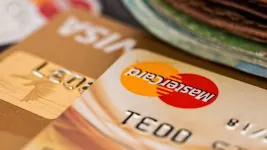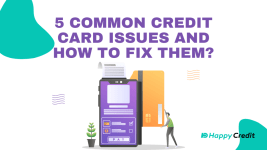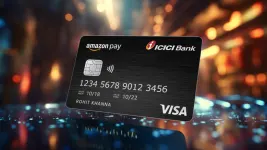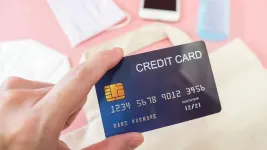Credit Card Vs Debit Card: Which one is Better? [August, 2024]
If you are new to using various financial instruments and have several questions, such as, “Is there any difference between debit and credit cards?” Which card should you opt for in different cases?” this article will provide a guide for the topic while highlighting the salient features of these tools.
ATM, Debit, and Credit Cards
You must have been using ATM and Debit cards interchangeably throughout your life, thinking these are the same. What if we tell you that there is a difference? Let’s learn the basics of these different types of cards before we move on to credit cards vs debit cards.
What is an ATM card?
An ATM card, as is its name, is a card that we use in the ATM to withdraw cash. The thing that separates an ATM from a Debit card is that this card cannot be used anywhere except an ATM machine. Try using an ATM card for online shopping, and you may see your payment getting failed.
How to know if your card is an ATM or Debit? It looks exactly like the Debit card except for one difference – the logo of the payment system used. If your card is only for ATMs, it may not bear the symbols like VISA, RuPay, Mastercard, etc. However, it may hold symbols like Cirrus, Plus, etc., on the front side.
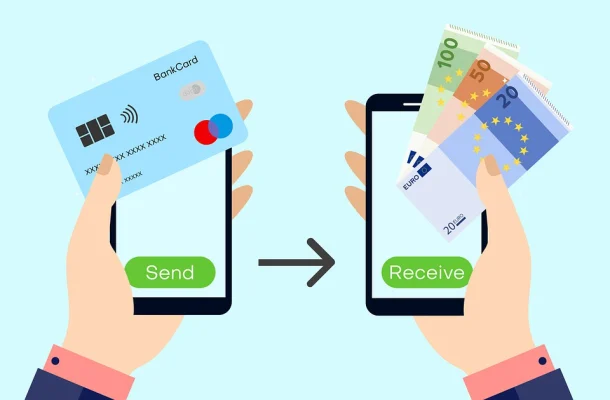
What is a Debit Card?
On the other hand, debit cards can be used to withdraw cash, purchase online, swipe at the fuel station, pay your rent, etc. This card can help you do transactions up to the balance you may have in the account linked to it. However, some banks even allow spending over the balance in the related account for a small fee called Overdraft or Return Fee.
A Debit Card contains:
- Cardholder’s name
- 16-digit card number
- Expiry Date
- 3 Digit CVV (The security number on the card’s back)
What is a Credit Card?
Unlike your debit card, a credit card allows you to borrow money on credit. Not everyone can have a credit card. The bank first sees the paying capacity of the person and allows the credit limit accordingly. You can use your credit card to shop online, pay bills, or even withdraw cash. But there is much more to a credit card than allowing you credit alone.
Let’s learn more about the difference between debit and credit cards in depth.
Credit Card vs Debit Card: Interest, Charges, Limits and Benefits
It may have occurred to you as to why the bank allows money on credit with the availability of debit cards and loans. However, both debit and credit cards have their benefits. Both of these cards are useful depending on individual preferences. For some, a debit card benefits those who don’t want to owe credit, while for others, a credit card works well and helps build their credit score.
But how do you decide which one is better for you? Look at the table below to learn more about credit cards vs debit cards.
| Differentiating Factors | Debit Cards | Credit Cards |
| Money Source | The money in your savings or current account | The money is borrowed from banks or financial institutions |
| Interest Rates | You get a basic interest rate of 3-6% against your money saved in a bank | The bank charges you interest against the money you spend using a credit card. It is generally higher. |
| Spending Limit | You can spend up to the balance in your bank account. However, some banks allow overdraft money. | You can’t spend over your credit limit. |
| Hidden Charges | No hidden charges are involved. | Some banks may charge hidden fees for international transactions, cash withdrawals, annual maintenance charges, etc. |
| Billing Cycle | No billing cycle | Bills are generally generated every month on a given date. |
| Who can have it? | Any person with a savings or currents account | A bank decides a person’s eligibility based on income, debt payment, age, etc., and thus sets a credit limit accordingly. |
Understanding Credit Card Terminologies
Now as you know the exact difference between debit and credit cards, it’s time to pick up on a few credit card terms.
- Billing Cycle – Every bank generates a bill against the credit card transaction made by you within a given period on the bill date. This period between one bill date and the next is called the billing cycle and generally is one month. For example, if your bill date is 17th October, your billing cycle will go from the 17th of one month to the 17th of the following month. In this case, your billing cycle is from 17th September to 17th October.
- Bill Date – A bill date of a credit card is when the bill is usually generated. It is different for every individual. Bank gives a default bill date while giving credit cards to its users. Considering the above example, your bill date will be 17th October.
- Due Date – Once your bill is generated at the end of the billing cycle, you are given a date before which you must pay your credit card bill. This date is called the due date, generally 20 days. Considering the above example, your due date will be 20 days after 17th October, which will be 6th November.
PRO TIP – “If the bill date is 17th October, buy a few days after your bill date, say 19th October. Your bill for this transaction will be generated on 17th November, and the due date will be 6th December. So, you’ll get 48 days to pay your bill.”
Conclusion
There is no single answer when it comes to the question of a credit card vs a debit card. There are times when debit cards work best in financial transactions, while there might be emergencies where a credit card may come to your aid. Whichever financial instrument is used, it is always wise to use it carefully and responsibly. Overusing credit cards can lead to a pile-up of debts if not paid on time. This may ruin your credit score and stop you from getting loans when needed.
FAQs
Q. Can the bank decrease my credit card limit?
Banks and credit card companies can change your credit limits based on your past performance. If you fail to pay your bill, miss the due date, or have high debt, the bank may reduce it.
Q. Is a prepaid card the same as an ATM card?
Some financial institutions may give you a plastic card with added money. This card is not attached to any bank account but is like use and throw.
Q. Which card wins in credit card vs debit card?
Credit cards help you tide over tough times responsibly without putting a load on your back. However, pay your bills by the due date to maintain your credit score.
Q. What is the CIBIL Score?
A credit rating that tells about the credit history and debt-paying capacity of an individual. It helps in getting future credits and loans. CIBIL Score ranges from 300 to 900, with 900 being the best.

Product prices and availability are subject to change. Any price and availability information displayed on merchant's site at the time of purchase will apply to the purchase of these products. HappyCredit is a participant in the Amazon Services LLC Associates Program, an affiliate advertising program. As part of this program, we may earn commission from qualifying purchases made through the affiliate links provided on this website. We only promote products on Amazon that we genuinely believe are of high quality and value to our audience. The inclusion of affiliate links does not influence our editorial content or product recommendations. Our primary goal is to provide useful information and help you make informed purchasing decisions.
Certain portions of the text in this article might have been created using AI tools and subsequently edited by the author to improve the overall quality and clarity of the content for readers.
![Credit Card Vs Debit Card: Which one is Better? [August, 2024] Credit Card Vs Debit Card: Which one is Better? [August, 2024]](https://happycredit.in/cloudinary_opt/blog/opt-n22px.webp)

